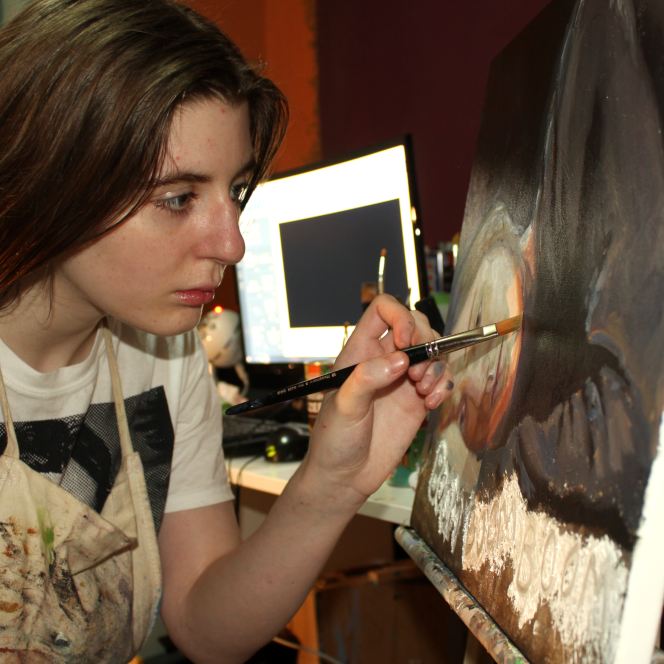STEP 1: coming up with the idea
This is the first step in creating a painting; I generally jot down ideas in words onto my phone as they come to me. For me, inspiration flows most often on a long commute while staring out of the window. I don’t really develop images from nothing; I tend to get a very vibrant flash of an image in my mind when inspiration strikes.
step 2: Sketching out the idea
Although I don’t always do this step, sketching out exactly how I want things to be in a painting helps to develop my ideas to better express the painting’s meaning. Mostly I do this with just pencil but sometimes I’ll add watercolors to get a feel for the color theme throughout the painting.
step 3: taking reference photos
I actually take my own reference photos, and because most of my work involves portraiture and I don’t have anyone else to photograph, I set up my camera on a tripod and use a timer to get photos of myself most of the time. Sometimes this might take a few tries, and I often have to get creative if I want specific lighting or positions.
step 4: Priming and preparing
Before I even get into the painting, I need to prime (and sometimes stretch, if I decide to stretch the canvas myself) the canvas. I generally use one or two layers of acrylic gesso on pre-primed canvas to make the texture less grainy, and 4-6 coats on unprimed canvas. This step can take a while, as each layer can take a while to dry (especially as the layers build up), so I generally prime a few canvases at once.
STEP 5: UNder-painting or sketch
On either a canvas or panel, I either use an under-painting or sketch in pencil to get the main shapes down correctly. For the most part, I always use a white ground to let the final painting glow more. If it’s a trickier painting or if I have more time I’ll likely use an under-painting, and if it’s simpler I’ll use just a simple sketch on the canvas.
step 6: Painting
I mix most of my main colors before I start painting, and for any other colors I need as I paint I mix them as I go. I mainly use filberts (round-tipped brushes) of different sizes to dab on the paint. I often find myself pulling out and exaggerating crazy colors from the reference photo that I would barely have noticed was there before staring at it. I mostly do direct painting, and don’t go on for layers and layers; if I’ve spent so much time on painting that I lose interest in the original idea, the point of it is gone for me!
purchase prints & original work







